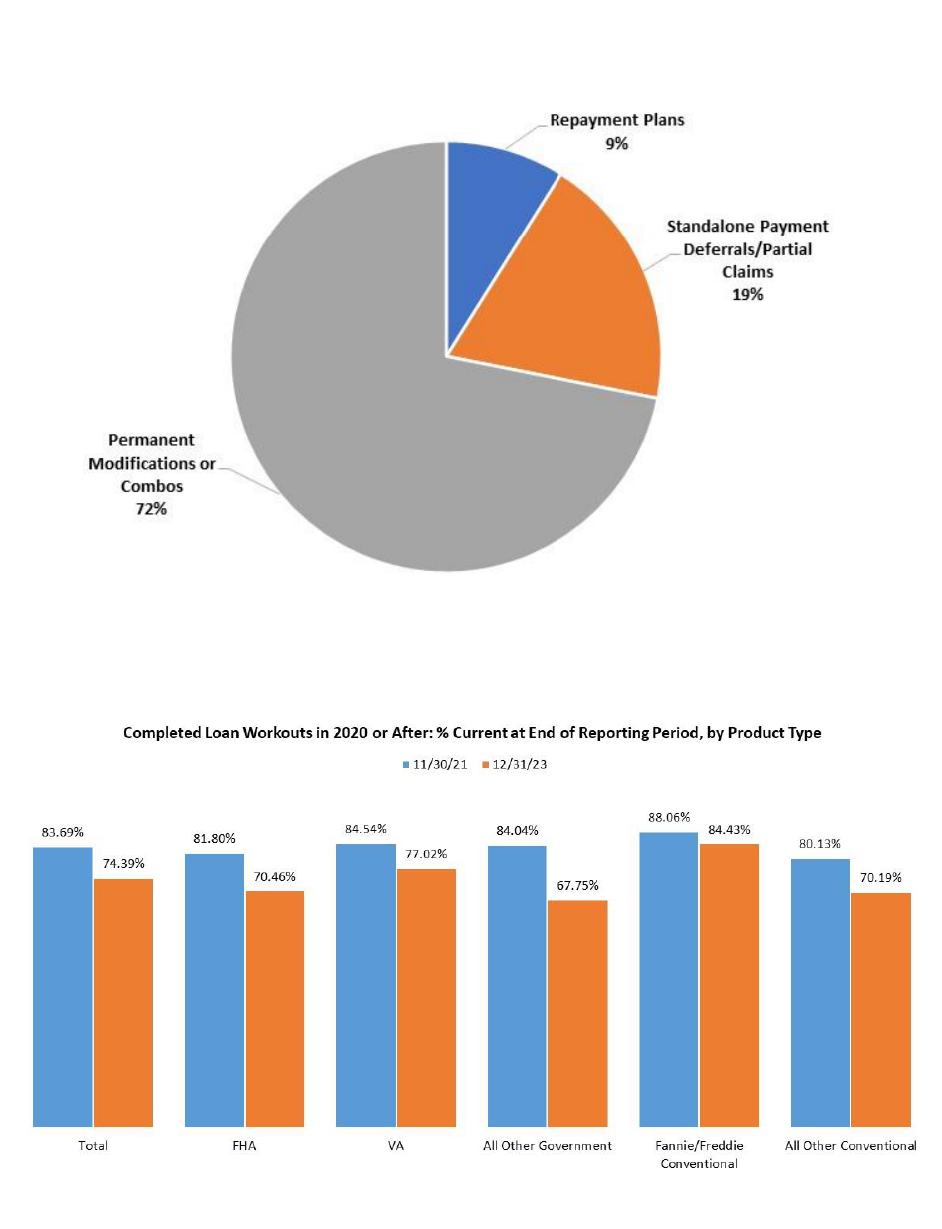
Statement of
Mark A. Jones
President, Union Home Mortgage
On Behalf of the Mortgage Bankers Association
U.S. House of Representatives
Committee on Veterans’ Affairs
Subcommittee on Economic Opportunity
“Sink or Swim? A Deep Dive into the Current State of VA’s
Home Loan Program in a Competitive Market”
February 15, 2024
2:30 P.M.

Testimony of Mark A. Jones
House Committee on Veterans’ Affairs
Subcommittee on Economic Opportunity
Oversight Hearing
February 15, 2024
1
Chairman Van Orden, Ranking Member Levin, and members of the Subcommittee,
thank you for the opportunity to testify today on behalf of the Mortgage Bankers
Association (“MBA”).
1
My name is Mark Jones, and I am the President of Union Home Mortgage, a national
independent residential mortgage lender. I was previously the Co-founder and CEO of
AmeriFirst Home Mortgage, a privately held mortgage lender headquartered in
Kalamazoo, Michigan.
I am appearing today in my capacity as the current Chairman of the MBA. As a lender
with deep personal experience originating, securitizing, and servicing Department of
Veterans Affairs (VA) Home Loan Program mortgages, I am honored to be appearing
before this Subcommittee for the second time within the past two years.
MBA appreciates this Subcommittee’s focus on the topics outlined for discussion with
the VA and other important stakeholders at today’s hearing, namely the current state of
VA’s Home Loan Guaranty program – including a review of the agency’s procedures
governing mortgages, appraisals, refinancing, and foreclosures – and the Veterans’
Assistance Servicing Purchase (VASP) program, which is scheduled for release this
year.
MBA is pleased to offer recommendations designed to help improve various Home Loan
Program elements and ensure that our nation’s Veterans receive a high-quality
homebuying experience in a challenging, changing, and competitive mortgage market
environment. We are, of course, acutely aware that the VA may require additional
resources from Congress to implement some of these suggested program
improvements and changes.
1
The Mortgage Bankers Association (MBA) is the national association representing the real estate
finance industry, an industry that employs more than 300,000 people in virtually every community in the
country. Headquartered in Washington, D.C., the association works to ensure the continued strength of
the nation's residential and commercial real estate markets, to expand homeownership, and to extend
access to affordable housing to all Americans. MBA promotes fair and ethical lending practices and
fosters professional excellence among real estate finance employees through a wide range of educational
programs and a variety of publications. Its membership of more than 2,200 companies includes all
elements of real estate finance: independent mortgage banks, mortgage brokers, commercial banks,
thrifts, REITs, Wall Street conduits, life insurance companies, credit unions, and others in the mortgage
lending field. For additional information, visit MBA's website: www.mba.org.

Testimony of Mark A. Jones
House Committee on Veterans’ Affairs
Subcommittee on Economic Opportunity
Oversight Hearing
February 15, 2024
2
At the outset of my statement, I want to underscore that the MBA – and its many
individual member firms who originate and service VA loans – have a positive and
productive working relationship with the agency – one forged over many years of
partnership.
The VA Home Loan Program is one of the most significant benefits our nation’s heroes
earn through their sacrifice and service. MBA recognizes the need for making this
important program more accessible, operationally efficient, flexible, and competitive
against other loan options. This is particularly important during times of individual crisis
for Veterans and their families. We understand this work will involve reaching a
bipartisan consensus with the members of this Subcommittee, the agency, and all other
key market participants and advocates. MBA looks forward to playing a constructive role
as part of this ongoing dialogue.
The VA Mortgage Market
The VA Home Loan Program plays a vital role in increasing the availability of mortgage
credit for servicemembers, Veterans, and surviving spouses. By guaranteeing a portion
of the loan balance, the VA enables lenders to offer loans with more favorable terms,
such as no required down payment.
The VA share of total U.S. loan originations in the mortgage market comprises about
10%. VA originations totaled nearly 1.4 million loans in 2020 and, by contrast, just over
590,000 loans in 2022. VA home loans are offered by a wide variety of mortgage
lenders – both independent mortgage lenders and depository institutions – throughout
the country.
Loss Mitigation Tools
The following five charts help to place VA loan mortgage delinquencies, foreclosures,
and loan workouts in context relative to the broader U.S. mortgage market.
As displayed within the first two charts, there are approximately 50 million mortgage
loans outstanding in the U.S. Approximately 3.7 million loans outstanding are VA loans.
Of those 3.7 million VA loans, a little over 150,500 VA loans (4.07%) are delinquent as
of year-end 2023, and around 26,000 VA loans (0.70%) are in foreclosure as of year-
end 2023.

Testimony of Mark A. Jones
House Committee on Veterans’ Affairs
Subcommittee on Economic Opportunity
Oversight Hearing
February 15, 2024
3

Testimony of Mark A. Jones
House Committee on Veterans’ Affairs
Subcommittee on Economic Opportunity
Oversight Hearing
February 15, 2024
4
As of year-end 2023, approximately 3 million loans were in loan workouts completed in
2020 or after, with approximately 205,000 (or 6.85%) being VA loan workouts.
Workouts include modifications, partial claims, and repayment plans. In the chart that
follows, workouts that are paid off are excluded.

Testimony of Mark A. Jones
House Committee on Veterans’ Affairs
Subcommittee on Economic Opportunity
Oversight Hearing
February 15, 2024
5
Of the approximately 205,000 VA Loan workouts with a December 2023 payment due,
about 19% are partial claims.
Source: MBA’s Monthly Loan Monitoring Survey

Testimony of Mark A. Jones
House Committee on Veterans’ Affairs
Subcommittee on Economic Opportunity
Oversight Hearing
February 15, 2024
6
Veterans’ Assistance Servicing Purchase (VASP) Program
MBA believes the current state of loss mitigation options requires urgent action. We
appreciate the dialogue VA has held with program stakeholders, but the time for a
public process for review and comment on VA’s new VASP program is necessary and
overdue – particularly since the agency will need to release those policy
recommendations quickly – and concurrently develop an appropriate implementation
timeline. Mortgage servicers stand ready to help the VA use VASP as one of its loss
mitigation tools to provide the relief needed to help Veterans stay in their homes.
In response to the dramatic increase in mortgage rates, MBA and several other
organizations wrote to the VA in January 2023 asking for an expansion of the VA’s
existing loss mitigation tools to address the mismatch between the mortgage note rates
that might need to be modified for Veterans in distress amidst rising market rates. One
consideration recommended at that time was for the VA to reconfigure and expand the
statutorily authorized refund program, which enables the VA to purchase delinquent
loans from servicers and change the terms of the original loans to reduce Veterans’
monthly payments.
The VA and all stakeholders would benefit from a transparent process that allows for
evaluation and input from a common starting point to identify any potential operational,
regulatory, and reputational risks that might pose a barrier to effectively helping
Veterans. A critical issue that needs careful consideration is the necessary time and
resources servicers will need to implement the VASP program.
VA Partial Claim Option
MBA also believes that VA borrowers facing temporary financial hardships should have
access to additional tools to resolve delinquency and avoid foreclosure. For example,
the partial claim options available to Federal Housing Administration (FHA) and Rural
Housing Service (USDA) borrowers are not currently found in the VA’s suite of loss
mitigation options. The COVID-19 Veterans’ assistance partial claim program expired in
October 2022.
A partial claim allows a Veteran borrower to either resume his/her regular payment or
achieve a sustainable level of payment reduction with a loan modification. Action by
Congress – such as language regarding a partial claim option contained within S. 3728,
recently introduced by Senate Veterans’ Affairs and Banking Committee Chairmen
Tester and Brown, respectively – would again make this essential option a reality.

Testimony of Mark A. Jones
House Committee on Veterans’ Affairs
Subcommittee on Economic Opportunity
Oversight Hearing
February 15, 2024
7
As the members of this Subcommittee are aware, MBA continues to call for
authorization of a permanent partial claim program as the industry’s preferred solution.
Mortgage servicers can deliver timely payment relief to Veterans, preserve affordable
homeownership, and prevent future crises with reliable access to a durable loss
mitigation framework that includes both a partial claim option and VASP.
A Broken Assumption Process
The assumption feature of VA loans can be beneficial under the right circumstances, as
it can provide a significant premium for the Veteran homeowner looking to sell their
home, while providing homebuyers with access to a below-market interest rate. In
practice, however, the required process for a homebuyer looking to assume an existing
VA loan has become broken over the years – largely because VA regulations have not
kept up with the market.
A proper assumption requires a VA loan servicer to complete a full underwriting of the
buyer that is assuming the loan in order to: (1) ensure the buyer has the ability to repay
and (2) protect taxpayers – and in some cases the Veteran who may remain liable on
the loan – from the cost of a default. A typical mortgage underwriting costs a lender
somewhere between $3,000 and $4,000 between application and closing. Since 1993
VA has only allowed lenders to charge a $300 flat fee to process an assumption – a fee
that has never been adjusted for inflation and was set during a time when neither a full
credit underwrite, nor licensed loan officer, were required elements (as they are now).
Simply stated, lenders lose thousands of dollars on each assumption transaction.
Additional frustrations with the process include the fact that while many assuming
parties must obtain a second mortgage to complete the transaction, VA provides little
guidance on acceptable forms of secondary financing. Many lenders are also unable to
offer a second-lien product, meaning borrowers must secure it from another source.
Finally, the lender is prohibited from making its own credit decision about a borrower it
will subsequently have to service – and bear credit risk against – as VA regulations
required the lender to approve any assuming party who meets the bare minimum
standards prescribed by VA. These standards can be lower than those that a lender
would choose to utilize to originate a VA purchase loan.
These broken economics predictably translate to frustration on both sides of the
transaction, including poor customer experiences and reduced value in VA servicing –
to the detriment of Veterans. As discussed by MBA for many years, VA can fix this
broken process by enabling the lender to at least recoup its costs in the transaction. We
hope VA elects to pursue this path, so that lenders have the flexibility to create better
outcomes for our Veterans.

Testimony of Mark A. Jones
House Committee on Veterans’ Affairs
Subcommittee on Economic Opportunity
Oversight Hearing
February 15, 2024
8
Appraisal Reform
We are grateful that now-current House Veterans’ Affairs Committee Chairman Mike
Bost’s prior appraisal modernization bill (H.R. 7735) was signed into law during the
117
th
Congress in late 2022 (now Public Law 117-308). I was privileged to testify before
this Subcommittee in May 2022 to discuss the implications of the legislation at that time,
as well as the need for VA to remain aligned with other programs so that more Veteran
homebuyers see their VA-backed offers accepted against conventional offers, cash
offers, or other types of financing.
Though market conditions have changed since I testified in 2022, the need for attention
on this topic remains. The still competitive and supply-constrained housing markets
across the country continue to favor sellers and, given the conditions that must be met
for VA loans to close, lenders report that many sellers give VA applicants low priority
when reviewing offers.
The enactment of PL 117-308 has resulted in many positive reforms. These have
included the expanded use of desktop appraisals in lieu of physical, “boots-on-the-
ground” appraisers, as well as proposed improvements to VA’s minimum property
requirements (MPRs) which have long been known to hold up transactions. In fact, MBA
submitted its comments to VA on MPRs just last week, joining several other trade
groups and stakeholders in encouraging VA to align its standards with those of the
housing GSEs – Fannie Mae and Freddie Mac.
One area that remains a major concern – and a topic which was not addressed by the
appraisal modernization statute – is VA’s unwillingness to delegate management of
appraiser rosters to lenders. Doing so would align the process with virtually every other
loan program. This remains a major contributor to the perception of appraiser shortages
in the VA space, as well as the actual heightened appraisal “turn-times” that make VA-
backed deals take longer to close.
MBA also encourages VA to lean into appraisal alternatives such as automated
valuation models (AVMs), where appropriate, as these can also reduce turn times,
minimize costs and friction, and improve the competitiveness of a VA-backed offer. To
that end, MBA, in partnership with the Mortgage Industry Standards Maintenance
Organization (MISMO®) has initiated a process to develop a common set of testing,
validation, and design standards for AVMs which comports with the recent interagency
proposed rule on AVMs and hopes to facilitate greater adoption of, and trust in, this type
of valuation methodology. We invite VA to join us in these efforts.

Testimony of Mark A. Jones
House Committee on Veterans’ Affairs
Subcommittee on Economic Opportunity
Oversight Hearing
February 15, 2024
9
While work remains to be done to streamline and evolve VA appraisal standards,
improvements have been made, and we thank both the VA and this Subcommittee for
their collective efforts to update this process and improve the strength of the VA home
loan benefit for Veterans across the country.
“Drafting Table” Policy Option
We encourage Congress to ensure the VA has the necessary resources to implement a
permanent public input process for the development of transformative policies before
they are required to be implemented. As we noted in our VASP comments, lack of a
process for formal stakeholder input has hampered the program’s development.
Consequently, MBA believes VA should adopt a “Drafting Table” process for interested
stakeholders – similar to the one used to great effect by FHA. This would expedite new
program initiatives by providing VA with constructive comments on the impact of
changes to a lender’s and servicer’s operations prior to implementation and
enforcement. Transparency and collaboration in policy development will ensure VA’s
mission goals are achieved, result in a more efficient mortgage program, and improve
positive outcomes for Veterans.
VA Funding Fees
As Congress considers multiple pieces of legislation that would expand or alter Veteran
benefits across a range of programs, MBA remains concerned about the repeated use
of VA home loan funding fee increases to pay for non-housing related Veterans’
benefits. MBA opposes legislation that increases or extends VA funding fees to offset
the costs associated with new and/or unrelated expenditures.
Simply stated, these funding fee increases and extensions implemented in recent years
– and being considered once again – are not in any way correlated with the actual credit
risks of Veteran homebuyers. If that were the case, the actual funding fee would be a
fraction of where it currently sits today, meaning that far more Veterans would be able to
qualify to purchase a home. Instead, that potential opportunity is out of reach for many
eligible Veterans. And those who can access the benefit are paying far more than they
should – in the midst of a housing affordability crisis – to help subsidize other federal
programs.

Testimony of Mark A. Jones
House Committee on Veterans’ Affairs
Subcommittee on Economic Opportunity
Oversight Hearing
February 15, 2024
10
These continued increases – and extensions of prior increases – severely threaten the
VA Home Loan Program. While any individual funding fee increase may be small, the
cumulative impact of the many hikes and extensions over the past decade is worrisome
and significant.
We urge Congress to work with the Biden Administration to ensure that VA funding fees
are set at levels commensurate with the risks associated with VA-guaranteed home
lending. Moreover, Congress should conduct appropriate oversight and analysis of past
funding fee increases – before simply defaulting to the practice of levying further
increases or extensions.
* * *
Conclusion
Once again, MBA appreciates the opportunity to comment on the many critical issues
that impact the efficacy of the VA Home Loan Program, including the need for potential
legislation to implement needed statutory changes. We value our partnership with VA
and our shared mission to help Veterans utilize their hard-earned benefit to achieve
homeownership.
Our association looks forward to working with the Subcommittee to forge practical
solutions – including, but not limited to, the development of legislation to make
permanent a VA partial claims option to help distressed borrowers. We also look
forward to working with Congress to help provide the VA with the resources necessary
to implement changes and improve the delivery of the Home Loan Program benefit to
our nation’s heroes.
I look forward to answering any questions you may have.
